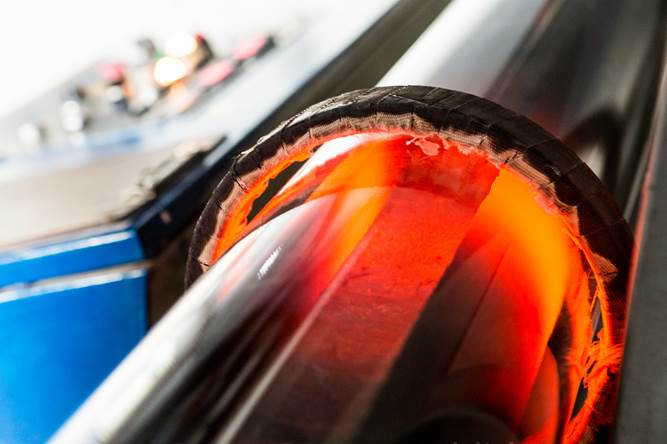Research » Pure Metals
The rapidly growing development and progress in the semiconductor, solar panel, photovoltaic and also the catalytic industry, has recently considerably increased the production and the number of applications of high-purity metals. In order to ensure the extremely low level of impurities (ppm or even ppb range), complex and highly controlled processes are required.
The Pure Metals Group at IME focuses on alternative and cost-efficient methods, particularly based on the principle of fractional crystallization to produce high-purity metals such as Germanium, Indium, Antimony but also Aluminum, etc.
The group is equipped with three main ultra purification devices – zone melting , cooled finger and static crystallizer.
Furthermore, the vacuum distillation is being investigated in this group too as a promising method for the synthesis of high-purity metals.
Project List
- Metal crystallization on rotating cooling cylinders – mechanisms and process model for the control of a high purification of metals using the example of aluminum.
- Creation of an extraction concept for Te-metal through reduction and its purification up to the production of high-purity Tellurium
- Design and development of a high-purity magnesium-calcium-zinc material using fractional crystallization for potential use as a biodegradable implant material
- Purification of intermetallic compounds via zone melting on Al2Cu
- Melting furnaces with a gradual high-temperature range of up to 1800 ° C and variable atmospheric conditions for the production of non-aligned multicrystalline silicon ingots (ingots) for photovoltaics
- Construction, building and experimental validation of pre-refining by means of a rotary cold finger to 6N germanium
- Production of ultra-pure magnesium, a comparison between vacuum distillation and the refining through static crystallization
- Process optimization on production of high purity Al and Sb through zone refining
Publications
| Year | Publications |
|---|---|
| 2025 |
congress or congress paper
Proceedings of EMC 2025
|
| 2024 |
article in scientific journal
Metals 2024, 14, 1363. https://doi.org/10.3390/met14121363
|
| 2024 |
article in scientific journal
Canadian Metallurgical Quarterly; https://doi.org/10.1080/00084433.2024.2355031
|
| 2024 |
article in scientific journal
ACS Sustainable Resource Management; https://doi.org/10.1021/acssusresmgt.4c00064
|
| 2024 |
poster
Berliner Konferenz Metallkreisläufe 2024
|
| 2024 |
article in scientific journal
ACSOmega2024,9, 6442−6454; https://doi.org/10.1021/acsomega.3c06178
|
| 2023 |
article in scientific journal
Journal of Materials Research and Technology; https://doi.org/10.1016/j.jmrt.2023.07.199
|
| 2023 |
congress or congress paper
European Metallurgical Conference 2023 (EMC 2023)
|
| 2023 |
article in scientific journal
Solvent Extraction and Ion Exchange; https://doi.org/10.1080/07366299.2023.2165405
|
| 2023 |
article in scientific journal
Metals 2023, 13, 280; https://doi.org/10.3390/met13020280
|



